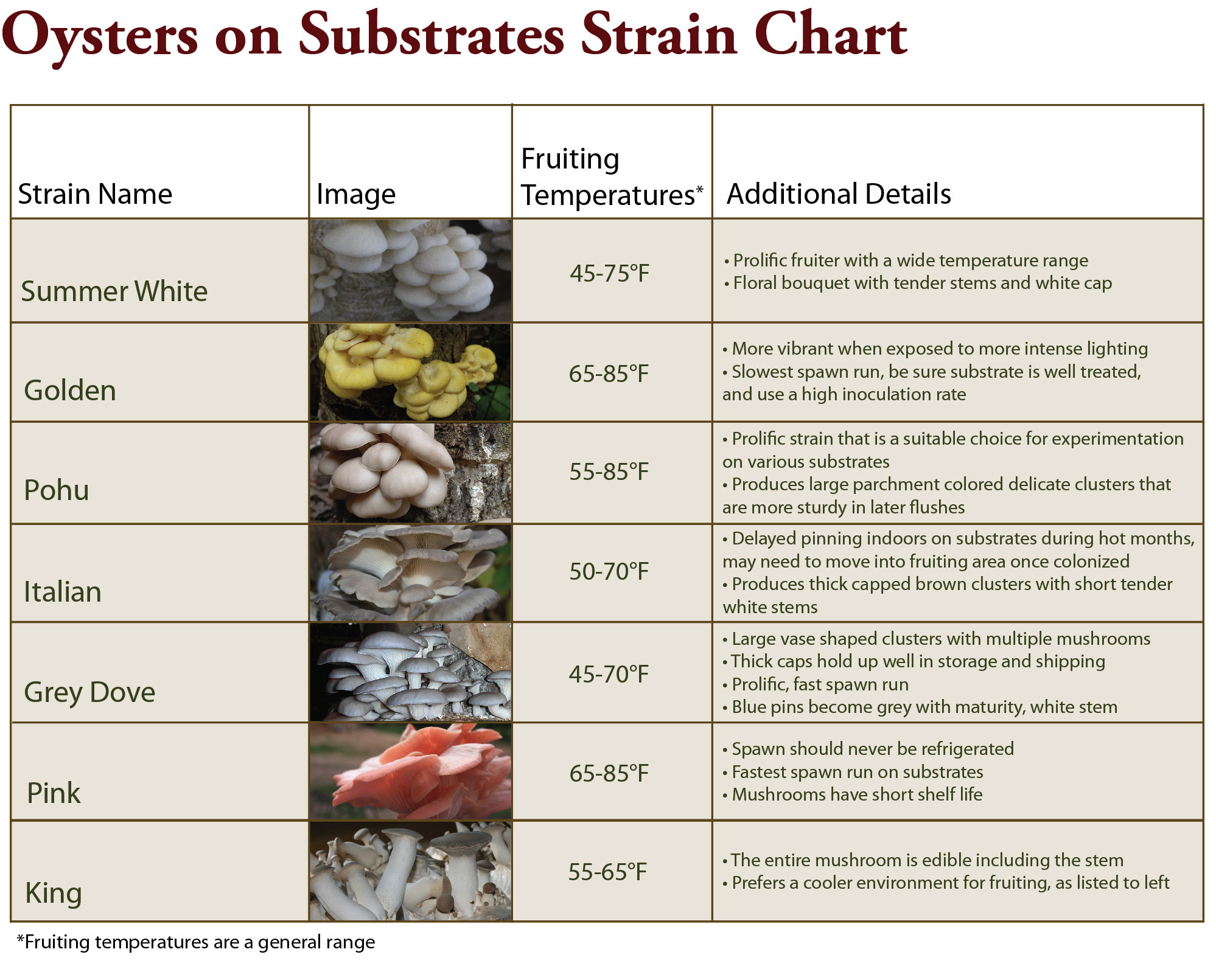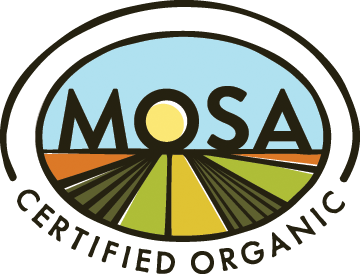Grow Indoors
Many mushroom varieties are grown indoors year round by hobbyists, experimenters, and commercial mushroom producers. Mushrooms require particular conditions in order to grow successfully indoors including semi-controlled temperature, humidity, light, and fresh air exchange. Click here for a list of conditions necessary to consider when selecting/setting up an indoor fruiting area.
Straw
Oyster mushrooms are commonly cultivated on prepared straw indoors. Straw can be prepared in one of three ways: heat pasteurization, hydrated lime soak, and fermentation, in order from most effective to least. Straw is drained (and cooled if heated) then mixed with oyster spawn - typically grain but sawdust can also be used. Inoculated straw is packed tightly into thick plastic sleeves, plastic buckets (watch how here!), or other container with holes for air exchange and fruiting. Incubation time from planting to fruiting varies based on temperature and strain, but is generally 1 1⁄2 - 3 weeks. Bags are typically moved after incubation to fruiting room where they are capable of producing many mushroom flushes over the period of 2-5 months. See the Oysters on Straw instruction sheet for detailed growing information, and the chart below for specific Oyster strain information.
TP Rolls
Oyster mushrooms are notoriously grown on experimental substrates and even utilized to reduce plant-based waste products like paper, cardboard, and cotton materials. Toilet paper rolls can be easily prepared and planted with oyster mushrooms using our TeePeeTM Kit. This method is great for educational projects, but growing oysters on toilet paper rolls is meant for fun and is not exceptionally productive.
Coffee Grounds
Coffee grounds are a common byproduct and are often times of interest to mushroom cultivators. In general, coffee grounds are not a preferred substrate due to their tendency to be excessively wet and prone to contamination. Oyster mushrooms, in particular our Pink and PoHuTM varieties, are the best candidates for coffee ground experimentation.
Blocks
Many mushroom varieties can be easily cultivated on sawdust-based blocks. They can be the simplest introduction to mushroom growing and a wonderful way to try Shiitake, Oyster, Lion's Mane, Comb Tooth, Reishi, and Chestnut mushrooms. Single units (Table Top Farms) are available as and come equipped with their very own humidity tent for easy indoor growing and gifting. We also offer 8-Block Sets that are typically grown in indoor fruiting rooms under controlled conditions.
Some growers elect to make their own ready-to-fruit mushroom blocks. We offer low-tech block kits that come with everything you need to get started if you're entering block production. Otherwise, on a more commercial scale we offer grain spawn and grain masters of our block varieties for inoculating self-prepared substrate.






